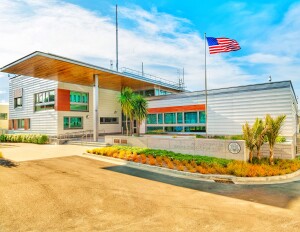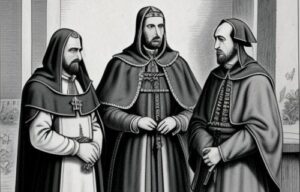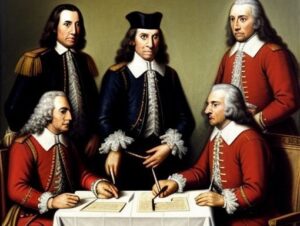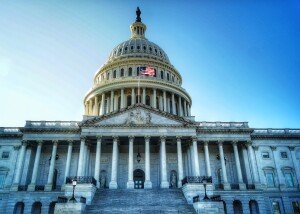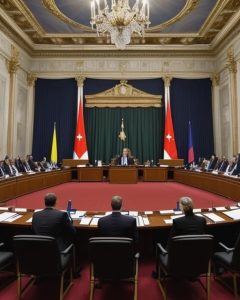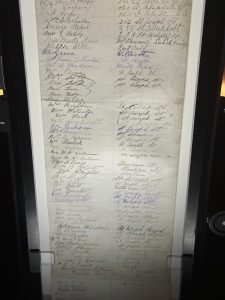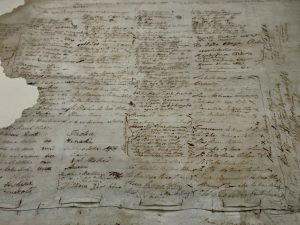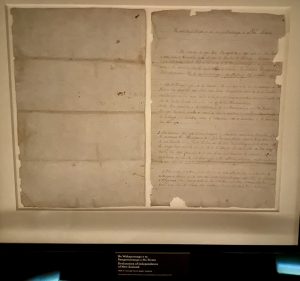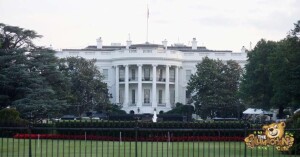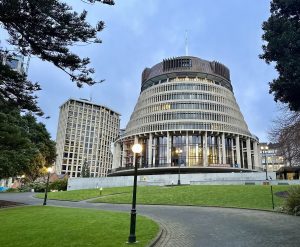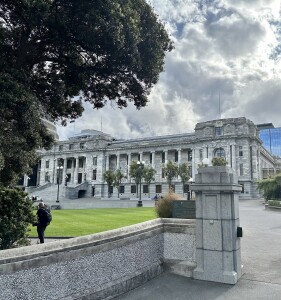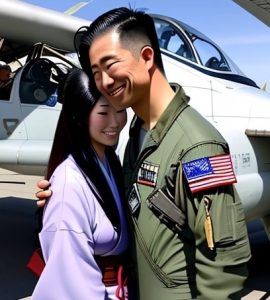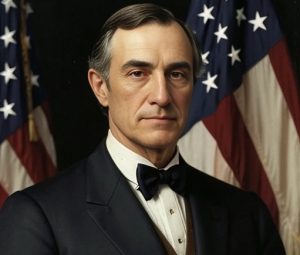The Treaty of Westphalia, signed in 1648, stands as a pivotal moment in European history. It not only ended two devastating wars—the Thirty Years’ War within the Holy Roman Empire and the Eighty Years’ War between Spain and the Dutch Republic—but also laid the groundwork for the modern concept of state sovereignty. At a time …
Category: Government
USS Bowfin: The Silent Hunter of Pearl Harbor
The USS Bowfin is more than just a submarine; it’s a powerful symbol of resilience, bravery, and the silent strength that prowled beneath the waves during World War II. Nicknamed the “Pearl Harbor Avenger,” this submarine was launched exactly one year after the attack on Pearl Harbor, on December 7, 1942. With 9 successful war …
Fort DeRussy: Where History Meets Paradise
Fort DeRussy, nestled along the vibrant coastline of Waikiki, is more than just a patch of lush greenery—it’s a site that blends Hawaii’s deep-rooted military past with the present-day allure of paradise. Originally established as a coastal defense fort in 1908, Fort DeRussy played a crucial role in Hawaii’s military history, especially during World War …
A Bridge Across Oceans: The U.S. Embassy in Wellington, New Zealand
Nestled in the heart of New Zealand’s capital, the U.S. Embassy in Wellington serves as a vital link between two nations separated by thousands of miles but united by shared values and interests. This diplomatic mission is more than just a building; it’s a hub of cultural exchange, policy collaboration, and mutual support that strengthens …
The Spanish Inquisition: A Dark Chapter in History
The Spanish Inquisition stands as one of the most infamous periods in history, a time when fear, persecution, and religious intolerance cast a long shadow over Spain and its territories. Established in 1478 by Catholic Monarchs Ferdinand II of Aragon and Isabella I of Castile, the Inquisition was originally intended to maintain Catholic orthodoxy in …
The Treaty of Utrecht: The Peace Accord That Reshaped Europe
The Treaty of Utrecht, signed in 1713, marked the end of the War of the Spanish Succession—a conflict that had engulfed Europe for over a decade. This series of agreements, negotiated between multiple European powers, not only brought peace but also redrew the political map of the continent, leaving a lasting impact on European history. …
The Treaty of Versailles: The Unsteady Peace That Shaped a Century
The Treaty of Versailles, signed in 1919, was meant to be the agreement that would finally bring an end to the horrors of World War I. After four years of devastating conflict, the world was desperate for peace, and the treaty was seen as the key to securing it. Crafted by the Allied Powers—primarily France, …
The State Department: Navigating Diplomacy with a Liberal Touch
The U.S. State Department is often perceived as a liberal institution within the federal government, a perception shaped by its global mission and cultural orientation. As the arm of the government responsible for international relations, the State Department is inherently focused on diplomacy and global engagement, which often align with liberal values emphasizing cooperation, dialogue, …
The Treaty of Paris (1783): The Diplomatic Masterpiece that Ended the American Revolutionary War
The Treaty of Paris, signed in 1783, stands as a monumental achievement in the annals of history, marking the end of the American Revolutionary War and the birth of the United States as an independent nation. This landmark agreement not only brought peace after years of conflict but also showcased the power of effective communication …
Digital Democracy: Navigating Misinformation, Algorithms, and Surveillance
In today’s fast-paced digital world, democracy faces new and tough challenges. Fake news spreads like wildfire on social media. It stops people from making informed choices and causes division. Algorithms push sensational content, creating echo chambers that block diverse views. Digital surveillance by governments or companies is a big worry too. It raises concerns about …
Lights, Camera, Politics: The Role of Actors and Actresses in Political Discourse
Actors and actresses frequently stand at the nexus of entertainment and politics, utilizing their prominence to address and influence public opinions on political matters. This prevalent phenomenon provokes discussions around the motivations and implications of their engagement in political discourse. There are several core reasons why these individuals find it fitting to involve themselves in …
The Treaty of Versailles: A Peace That Fueled Future Conflict
The Treaty of Versailles, inked on June 28, 1919, was instrumental in concluding World War I. Originating from deliberations at the Paris Peace Conference held between 1919 and 1920, the treaty stands out particularly for its imposition of the War Guilt Clause. This clause apportioned sole responsibility for the conflict to Germany and its allies, …
Communism’s Subtle Grip: Unraveling Its Impact on America’s Tapestry
Throughout its robust history, the United States has been greatly impacted by communism. Despite its unwavering commitment to a capitalist system and the safeguarding of individual rights and freedoms, communism has undeniably shaped various aspects of American society, politics, and culture. The emergence of communism on a global scale, particularly during the tense Cold War …
The Dark Side of Globalization: Cultural Loss and Exploitation
Despite its potential benefits, globalization ultimately leads to negative consequences, including loss of cultural identity and exploitation of developing countries, making it a harmful force in the world economy. The term “globalization” refers to the fast and continuously deepening connections among the world’s markets and businesses. It is frequently spoken of as a wonderful thing—a …
Aotearoa’s Journey: Upholding Maori Rights and Reconciliation
New Zealand is globally admired for its breathtaking landscapes and dynamic cultural fabric, a legacy profoundly shaped by its indigenous Maori people. Although constituting a minority, the Maori wield considerable influence within New Zealand’s socio-political framework, underlined by governmental initiatives designed to elevate their needs and rights. This discourse explores the historical foundations, the Treaty …
Navigating the Big vs. Small Government Debate: Pros and Cons Unveiled
The debate between big government and smaller government has been a hotly contested topic for decades. It revolves around the size, role, and scope of government intervention in society. While both approaches have their supporters and critics, the discussion continues to be a crucial one, with each side highlighting specific advantages and disadvantages. Let’s take …
Balancing Liberty and Security: The Case for Protecting Civil Liberties in the U.S.
In the contemporary landscape of heightened global threats and ever-evolving technologies, the tension between national security and civil liberties has become one of the most pressing issues facing democratic societies. The United States, a nation founded on principles of freedom and individual rights, finds itself at a crossroads where it must balance the imperative of …
The Vienna Convention: The Pillar of Global Diplomacy
The Vienna Convention is celebrated as a monumental fit of diplomatic choreography, a work of art that pulls the international community of nations together in the service of a shared vision—elusive, yet beautiful—of world diplomacy. At its core, it is a treaty that makes the code under which diplomats work a matter of international law, …
The Vital Role and Ongoing Impact of the Geneva Convention: Protecting Human Rights in Modern Warfare
In the annals of international law, few agreements hold as much significance and moral gravity as the Geneva Convention. Established to mitigate the horrors of war and safeguard human dignity, this framework has laid down indispensable guidelines for humanitarian efforts and the protection of prisoners of war (POWs). Since its inception, it has represented a …
Pioneering Progress: New Zealand’s Trailblazing Women’s Suffrage Movement
In 1893, New Zealand made history by becoming the first self-governing country to grant women the right to vote. This monumental achievement was the result of years of tireless campaigning led by the fearless Kate Sheppard. Her leadership and unwavering determination, along with the support of thousands of women, culminated in the New Zealand Women’s …
Empowering Tomorrow: USAID’s Global Impact
USAID, or the United States Agency for International Development, is a crucial player in the U.S. government’s efforts to bring aid and support to developing nations around the world. Since its establishment in 1961, USAID has remained dedicated to promoting peace, prosperity, and stability by tackling poverty at its source and creating sustainable pathways for …
Davy Crockett: The Legendary King of the Wild Frontier
Davy Crockett, also known as the “King of the Wild Frontier,” embodies the rugged individualism and pioneer spirit of early 19th-century America. Born in 1786, his adventures as a frontiersman, soldier, and politician have made him a beloved folk hero. His legendary status was solidified by his exceptional hunting abilities and his captivating stories of …
Unpacking the Complexities of Status of Forces Agreements: A Comparative Analysis
The existence of a status of forces agreement (SOFA) between a host country and a foreign military is a complex issue that requires careful consideration and analysis, as demonstrated by the varying approaches and policies of countries such as the United States, Germany, and Japan. The existence of a Status of Forces Agreement (SOFA) between …
Shielded Diplomats: Ensuring Open Dialogue in International Relations
Diplomatic immunity is a critical aspect of international relations, serving as a vital safeguard for diplomats to carry out their duties without fear of legal repercussions or outside influence. This fundamental principle is enshrined in the Vienna Convention on Diplomatic Relations of 1961, a cornerstone of diplomatic interactions that fosters mutual respect and understanding among …
Treaty of Waitangi: Bridging Cultures, Navigating Legacies
The Treaty of Waitangi stands as a foundational element in New Zealand’s history, epitomizing the dawn of a new era for both the Māori and the Pākehā (European settlers). Signed in 1840, it symbolized a covenant of cooperation and guardianship between the British Crown and Māori chieftains. Yet, its interpretation and execution have ignited persistent …
Unveiling New Zealand’s Sovereign Legacy: The 1835 Declaration of Independence
The signing of the New Zealand Declaration of Independence on October 28, 1835 was a significant moment in the nation’s history, marking a pivotal step towards establishing New Zealand’s sovereignty. This powerful document, also known as “He Whakaputanga o te Rangatiratanga o Nu Tireni” in Māori, was crafted and signed by 34 influential Māori chiefs …
Campaign Cash: The Strategic Chess Game of Presidential Spending
Presidential campaigns are like a high-stakes game of chess, with candidates vying for the ultimate prize – the presidency. To outmaneuver their opponents, campaigns must strategically allocate their funds to maximize voter outreach, mobilize supporters, and ultimately compete in the electoral process. So, where do these campaigns spend their money? Let’s take a look at …
Blossoming Bonds: The Dynamic U.S.-Japan Alliance in the Asia-Pacific
The bond between the United States and Japan has blossomed into a dynamic alliance, shaped by a common vision for peace and prosperity. Emerging from the ashes of World War II, this partnership has evolved into a vital pillar for security in the Asia-Pacific region. The 1951 U.S.-Japan Security Treaty, later revised in 1960, laid …
The Road to Statesmanship: Traits of a Visionary Leader
A statesman epitomizes the fusion of wisdom, integrity, and exceptional leadership, utilizing these attributes to serve and represent their country or community. They transcend mere politics, embodying a profound comprehension of societal needs and values, dedicated to advancing the well-being of their nation holistically. At the core of a good statesman lies a selfless commitment …




